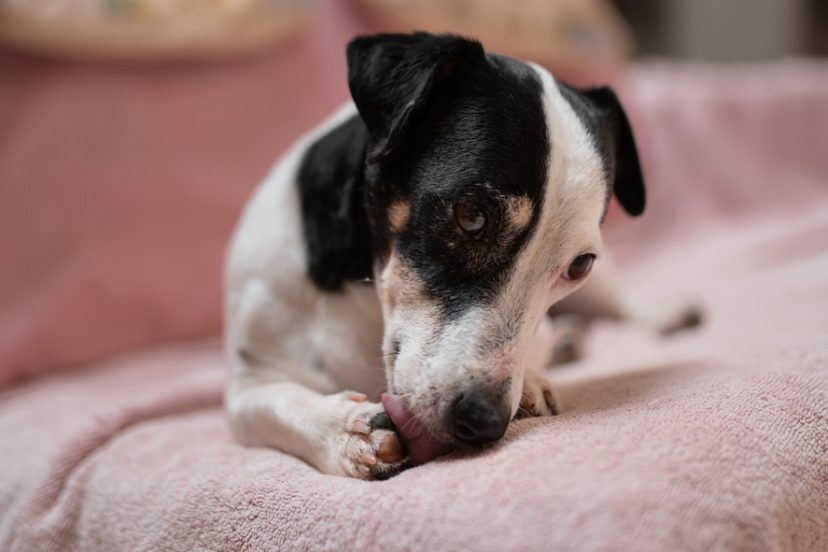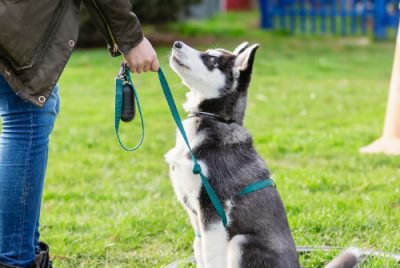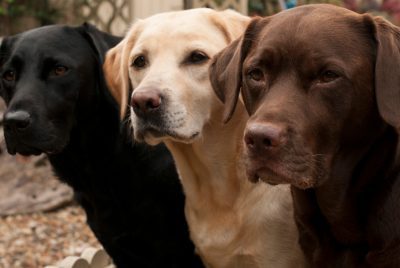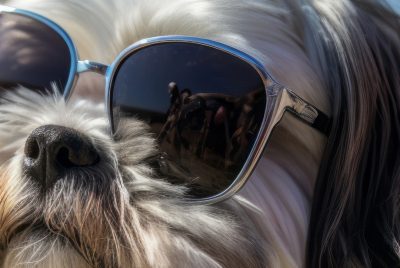Why do Dogs Lick and Chew their Paws
Post Disclaimer
We may earn a commission for purchases made using our links. Please see our Disclaimer to learn more.
As a dog owner, it can be concerning to see your furry friend constantly licking and chewing their paws. But why do dogs engage in this behavior, and what can you do to help them? In this article, I will address the reasons behind excessive paw licking and chewing in dogs and provide you with practical tips to assist your beloved canine companion.
Allergies
One common reason why dogs lick and chew their paws is allergies. Dogs, like humans, can be allergic to certain foods, environmental factors, or substances they come into contact with. The discomfort caused by allergies often leads dogs to excessively lick or chew their paws as a way to alleviate the itchiness or irritation. If you notice your dog’s paw licking and chewing is accompanied by other symptoms such as sneezing, watery eyes, or skin rashes, it might be indicative of an allergic reaction.
Boredom or anxiety
Dogs are social animals that thrive on companionship and mental stimulation. When they feel bored or anxious, they may resort to behaviors like paw licking and chewing as a way to relieve stress or occupy themselves. It’s important to ensure that your dog receives enough exercise, playtime, and mental enrichment to prevent boredom and anxiety-related behaviors.
Dry skin or dermatitis
Dry skin or dermatitis can also cause them to excessively lick and chew their paws. Just like humans, dogs can experience dryness or irritation of the skin, leading to discomfort. Dry indoor air, harsh weather conditions, or certain grooming products can contribute to this issue. Providing proper hydration, using moisturizing shampoos, and keeping your dog’s environment adequately humidified can help alleviate dry skin problems.
Pain or discomfort
Sometimes, paw licking and chewing can be a sign that your dog is experiencing pain or discomfort in their paws. Injuries such as cuts, splinters, or foreign objects stuck between the toes can cause irritation and pain. Additionally, joint issues or arthritis can also lead to paw-related discomfort. It’s essential to regularly check your dog’s paws for any signs of injury and consult with your veterinarian if you suspect pain or discomfort.
How to help your dog with paw licking and chewing
Regular grooming and hygiene
Maintaining good paw hygiene is crucial to prevent excessive licking and chewing. Trim your dog’s nails regularly to ensure they are at an appropriate length. Long nails can cause discomfort and make your dog more prone to paw-related issues. Additionally, check for any foreign objects or debris stuck between the toes and gently remove them. Keeping the fur around the paws trimmed can also help reduce the accumulation of dirt and moisture.
Addressing allergies or sensitivities
If allergies are the underlying cause of your dog’s paw licking and chewing, it’s important to identify and address the allergen. Consult with your veterinarian to determine the allergen through testing or elimination diets. Once identified, you can modify your dog’s diet, adjust its living environment, or use allergy medications or supplements as recommended by your vet. By minimizing exposure to allergens, you can help alleviate your dog’s symptoms.
Providing mental and physical stimulation
Boredom and lack of mental or physical stimulation can contribute to paw-related behaviors. Ensure your dog receives regular exercise appropriate for their breed and age. Engage in interactive play sessions and provide mentally stimulating toys to keep their minds occupied. Puzzle toys, treat-dispensing toys, and training sessions can all help divert your dog’s attention away from excessive paw licking and chewing.
Using deterrents or distractions
To discourage your dog from licking and chewing their paws, you can use taste deterrents or distractions. Bitter-tasting sprays or creams designed specifically for dogs can be applied to the paws to discourage licking. Alternatively, offering appropriate chew toys or treats can redirect their attention and provide an alternative outlet for their chewing instincts.
Seeking veterinary help
If your dog’s paw licking and chewing persist despite your efforts, it’s advisable to consult with a veterinarian. They can conduct a thorough examination to rule out any underlying medical conditions, prescribe medications if necessary, or recommend further treatment options based on their findings. A veterinarian’s expertise and guidance can help address the issue more effectively and ensure the well-being of your furry companion.
Conclusion
Understanding the reasons why dogs lick and chew their paws is essential for providing appropriate care and support to your beloved pet. Allergies, boredom, dry skin, and pain are some of the common factors that contribute to this behavior. By implementing proper grooming practices, addressing allergies, providing stimulation, using deterrents, and seeking veterinary help when needed, you can help your dog find relief from excessive paw licking and chewing. Remember, your dog’s well-being is a priority, and with patience and care, you can assist them in overcoming this behavior.
Check out some home remedies. 12 Best Home Remedies For Dog Licking Paws – Veterinarians.org
FAQs
- Is it normal for dogs to lick their paws occasionally? Yes, it is normal for dogs to lick their paws occasionally as part of their grooming routine. However, excessive or persistent paw licking and chewing could indicate an underlying issue that requires attention.
- Can food allergies cause paw licking in dogs? Yes, food allergies can contribute to paw licking and chewing in dogs. If you suspect food allergies, consult with your veterinarian to identify the specific allergen and make appropriate dietary changes.
- Should I be concerned if my dog’s paw licking is accompanied by swelling or redness? Yes, swelling or redness accompanying paw licking can be a sign of inflammation or infection. It’s advisable to consult with a veterinarian to determine the cause and receive proper treatment.
- Can anxiety or stress lead to excessive paw licking in dogs? Yes, anxiety or stress can manifest in various behaviors, including excessive paw licking and chewing. Providing a comforting environment and engaging in anxiety-reducing activities can help alleviate these symptoms.
- How long should I wait before seeking veterinary help for my dog’s paw licking and chewing? If your dog’s paw licking and chewing persist for an extended period or are accompanied by other concerning symptoms, it’s best to consult with a veterinarian sooner rather than later. They can assess the situation and provide appropriate guidance and treatment options.




